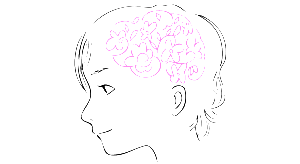Brains under construction
Not finished yet, teenagers? That's normal, their brains are still growing! Focus on the human brain, which never stops developing, at a time when a public conference on this topic is being held in Montpellier.
 Adolescence, that period of great upheaval, has undoubtedly not revealed all its mysteries. What has long ceased to be a mystery is that this period of physical transformation brings with it many identity issues. However, this is only the tip of the iceberg: we now know that the transformation is also cerebral.
Adolescence, that period of great upheaval, has undoubtedly not revealed all its mysteries. What has long ceased to be a mystery is that this period of physical transformation brings with it many identity issues. However, this is only the tip of the iceberg: we now know that the transformation is also cerebral.
Neuronal efflorescence
"Many adolescent disorders—attention disorders, poor judgment, difficulty processing information, etc.—are much more likely to be linked to neural development than to any other factor," says Dr. Robert Brès, a psychiatrist specializing in adolescence.
"During this crucial period, our brains begin to grow in all directions in a chaotic manner," he explains.
During this period, development is akin to"gardening." The metaphor reflects a concrete reality: the work of the glial system. "Glial cells have a dual function. They envelop axons, thereby increasing the speed at which signals can be transmitted from one neuron to another. But they are also there to cut off rarely used afferents." A system whose raison d'être is therefore to bring order to a neural jumble in full bloom...
Experimenting with one's thoughts
An order that can be acquired through other means: culture, language, artistic expression, explains Robert Brès. At the Maison des Adolescents 34, he welcomes young people aged 11 to 21. "They are often asked, 'What do you want to do when you grow up? It's a question they can't answer. They need to learn how to think properly: an operation which, etymologically, consists of 'weighing up' ideas."
This is something that teenagers often reject as particularly burdensome. Which is only natural...
"You can't ask a teenager to think like an adult! " continues Robert Brès. " Without pigeonholing them into this status, we need to take into account the specific nature of teenagers: they are neither grown-up children nor miniature adults."
A place to be heard and a center for diverse and multiple resources, the teen center offers young people the opportunity to express themselves in other ways: writing, drawing, relaxation... Creative practices that allow them to experiment with their thoughts in order to better control them. They also have the opportunity to meet with adults: cultural facilitators, social workers, healthcare professionals... "An encounter can be a spark and open doors, " says Robert Brès. " Even if they are often inner doors."
- Master brain perched on its man... Public symposium on the brain, October 22-23, 2015, Montpellier Academy of Sciences and Letters